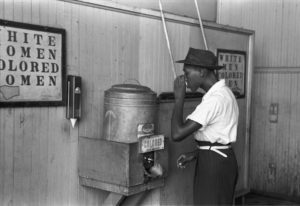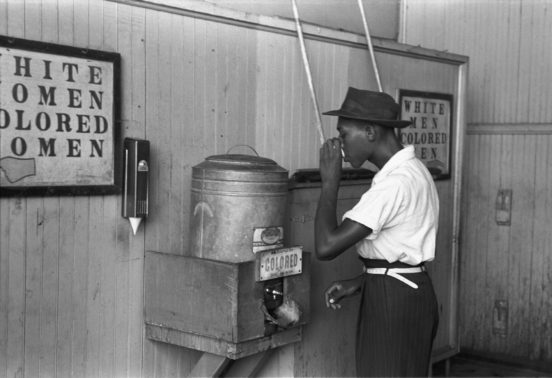by Elaine Plybon
As we begin processing yet another round of police shootings involving Black men, one can see the debate beginning on social media – was the police officer in the wrong? was the person shot deserving of the death penalty absent judge or jury?
Responses are instantly defensive and accusatory. In one Facebook post where the white, female poster made the comment that the Tulsa police officer needs to be indicted, a white, male posted the comment, “I invite you to ride around in a police car on any night to see what they have to deal with.”
This particular discourse reveals two important pieces to the stasis our nation seems to be in regarding issues involving race. These are the first two pieces essential for white people to understand when they process the issue of racism in the United States:
1. Defense is not an answer.
As human beings, we have an innate desire to feel a part of a group, to feel loved, to feel accepted. When we are faced with the possibility that we are not accepting of others, our immediate response is defense. “I never do anything racist!” The truth is, nobody NEVER does anything racist, regardless of the color of their skin, their religion, their gender. We all have had messages embedded into our psyche since the day we were born. The result is that there are times, even when we are very aware of ourselves, that we say or do things that show implicit bias against others. We may even do something that can be considered a microaggression against a group of people without even knowing it. This doesn’t mean you are a bad person. This means you have something to learn. We all have something to learn. Admitting these transgressions, asking for forgiveness, and becoming educated in the matter are the first three steps toward reducing the number of times you will falter.
2. An accusation against one is not a mark against all.
In social media and in life, the tendency for all of us seems to be to take offense at comments that are made against racism and bigotry. When a comment is made about specific behaviors and the reader knows that they, themselves, do not exhibit those behaviors, the response is nearly always a cry of “that’s not true! I (fill in the blank) or don’t (fill in the blank).”
This is dangerous, and it is why the issue of police brutality against Black people has been shoved under the rug for so long. We all know and appreciate wonderful police officers who are in th e profession for the right reasons, dedicate their lives to protecting every person under their watch, and receive the best training available regarding the use of deadly force. It seems that this fact makes us unable or unwilling to acknowledge, that there are also police officers out there who are in the profession for the wrong reasons, are highly unqualified mentally for the job, have strong biases against particular groups of people, or simply are not adequately trained. When we make a statement like the response at the top of this article, we are instantly ignoring and dismissing the very real struggle that is happening.
e profession for the right reasons, dedicate their lives to protecting every person under their watch, and receive the best training available regarding the use of deadly force. It seems that this fact makes us unable or unwilling to acknowledge, that there are also police officers out there who are in the profession for the wrong reasons, are highly unqualified mentally for the job, have strong biases against particular groups of people, or simply are not adequately trained. When we make a statement like the response at the top of this article, we are instantly ignoring and dismissing the very real struggle that is happening.
In order for anything in our society to change, white people including myself, need to understand that even if we perceive that everyone around us is not racist, there is plenty of racism in our country. This acknowledgement stretches across other social issues, such as intolerance of opinion, gender equity, and LGBTQ rights.
Let’s stop being defensive and make a difference in this world.






Comments by eplybon